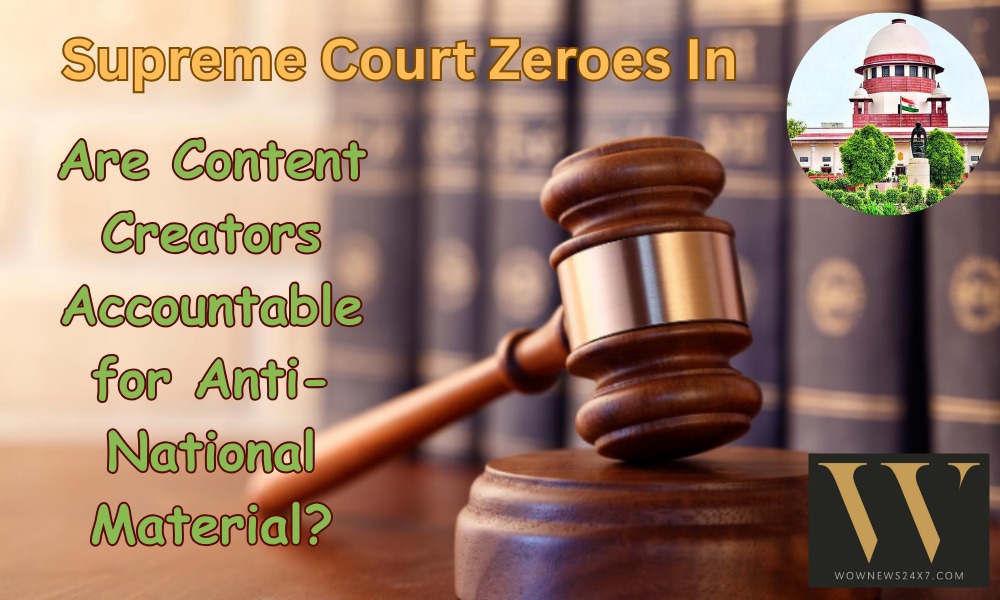 Image Source: WowNews24x7
Image Source: WowNews24x7
The Supreme Court of India has sought clarity from the Centre on whether content creators will be held responsible for posting anti-national content online. It underscores the legal and ethical implications of regulating digital content in an era of rampant misinformation and rising national security concerns.
Show more
In a significant development, the Supreme Court of India has posed critical questions to the Centre regarding the responsibility of content creators for material deemed anti-national. This stems from a growing concern over digital content that allegedly undermines national integrity, prompting the apex court to seek the government's stance on legal accountability and enforcement mechanisms.
The court's examination focuses on how far creators can be held liable when their posts or videos are perceived to promote ideas against the nation’s interest. It also highlights the challenges in balancing freedom of expression with safeguarding national security and public order amid a complex online ecosystem.
Key Highlights:
Accountability of Content Creators
The Supreme Court asked the Centre whether content producers themselves will bear responsibility if their work contains anti-national elements.
This scrutiny reflects increasing governmental emphasis on curbing harmful digital material that can incite unrest or propagate misinformation.
Legal and Ethical Boundaries
The apex court’s inquiries underline the need to define legal boundaries for online content while respecting constitutional rights.
The government’s response is expected to focus on how laws like the IT Act and other regulations address this issue.
Challenges of Digital Regulation
With social media’s rapid proliferation, the court highlighted difficulties in policing vast digital content without infringing on free speech.
The discussion points to the need for effective frameworks balancing security concerns and individual rights.
Implications for Policy and Enforcement
Potential directives from the Supreme Court may shape future policies for monitoring and penalizing creators of controversial content.
This could lead to enhanced oversight by platforms and clearer guidelines for content moderation.
The Supreme Court’s engagement marks a crucial step in navigating the complicated intersection of digital freedom and national integrity. The Centre’s response and ensuing judicial deliberations will be watched closely for their impact on India’s approach to online content governance.
Sources: The Economic Times, LiveLaw, Bar & Bench, Indian Express
Stay Ahead – Explore Now!
SRF Breathes Easy: ₹852.3 Cr Tax Demand Set Aside in Major Relief
Advertisement
Advertisement